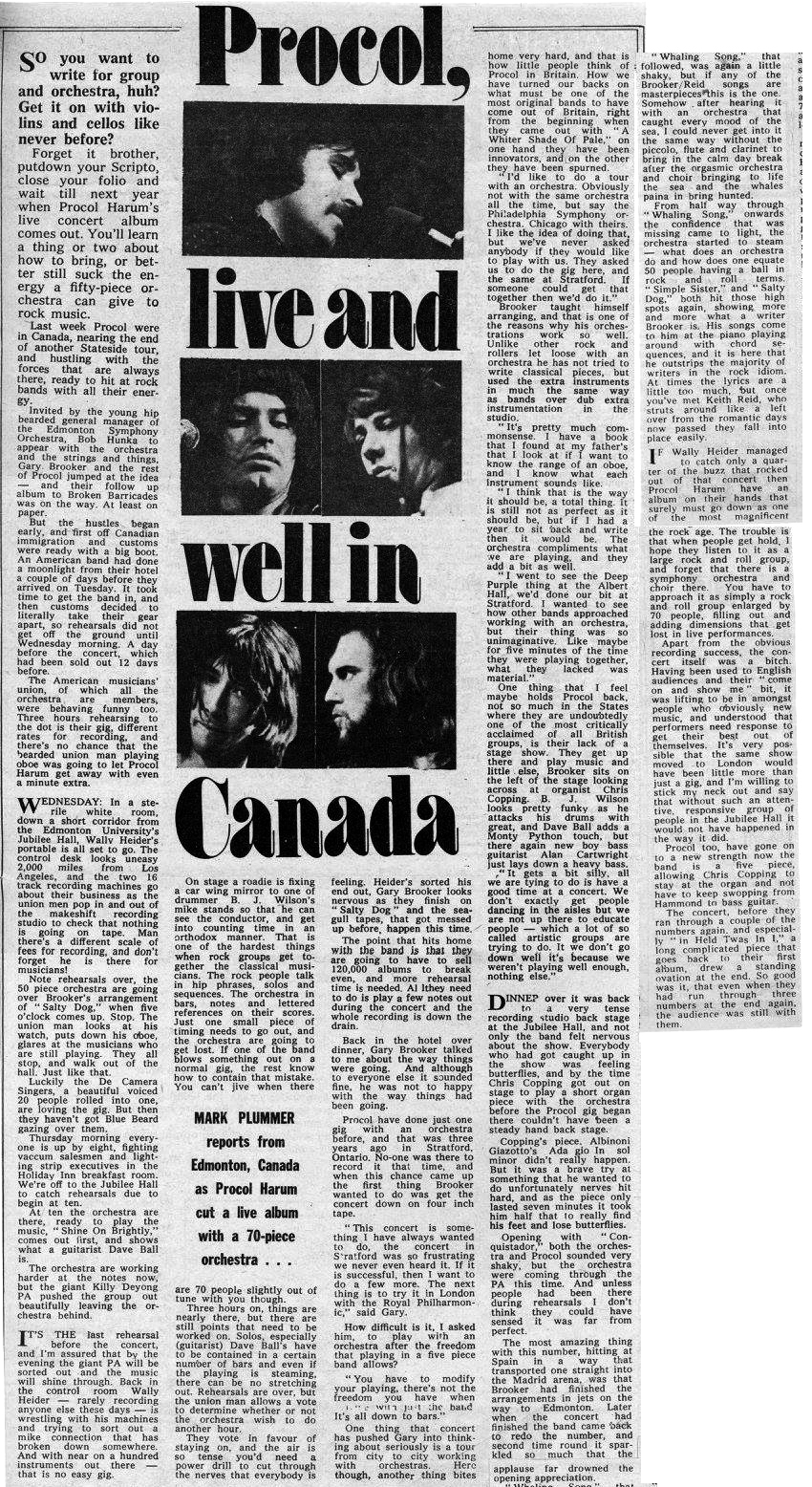 So you want to write for group and orchestra, huh? Get it on
with violins and cellos like never before?
So you want to write for group and orchestra, huh? Get it on
with violins and cellos like never before?Procol HarumBeyond
|
|
PH on stage | PH on record | PH in print | BtP features | What's new | Interact with BtP | For sale | Site search | Home |
|
 So you want to write for group and orchestra, huh? Get it on
with violins and cellos like never before?
So you want to write for group and orchestra, huh? Get it on
with violins and cellos like never before?
Forget it brother, put down your Scripto, close your folio and wait till next year when Procol Harum's live concert album comes out. You'll learn a thing or two about how to bring, or better still suck the energy a fifty-piece orchestra can give to rock music.
Last week Procol were in Canada, nearing the end of another Stateside tour and hustling with the forces that are always there, ready to hit at rock bands with all their energy.
Invited by the young hip bearded general manager of the Edmonton Symphony Orchestra, Bob Hunka, to appear with the orchestra and the strings and things, Gary Brooker and the rest of Procol jumped at the idea – and their follow-up album to Broken Barricades was on the way. At least on paper.
But the hustles began early, and first off Canadian immigration and customs were ready with a big boot. An American band had done a moonlight from their hotel a couple of days before they arrived on Tuesday. It took time to get the band in, and then customs decided to literally take their gear apart, so rehearsals did not get off the ground until Wednesday morning. A day before the concert, which had been sold out 12 days before.
The American musicians' union, of which all the orchestra are members, were behaving funny too. Three hours rehearsing to the dot is their gig, different rates for recording, and there's no chance that the bearded union man playing oboe was going to let Procol Harum get away even a minute extra.
Wednesday: in a sterile white room, down a short corridor from the Edmonton University's Jubilee Hall, Wally Heider's portable is all set to go. The control desk looks uneasy 2,000 miles from Los Angeles, and the two 16-track recording machines go about their business as the union men pop in and out of the makeshift recording studio to check that nothing is going on tape. Man there's a different scale of fees for recording, and don't forget he is there for musicians!
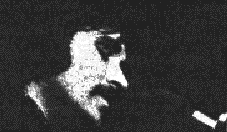
Note rehearsals over, the 50 piece orchestra are going over Brooker's arrangement of Salty Dog when five o'clock comes up. Stop. The union man looks at his watch, puts down his oboe, glares at the musicians who are still playing. They all stop, and walk out of the hall. Just like that.
Luckily the De Camera Singers, a beautiful voiced 20 people rolled into one, are loving the gig. But then they haven't got Blue Beard gazing over them
Thursday morning everyone is up by eight, fighting vacuum salesmen and lighting strip executives in the Holiday Inn breakfast room. We're off to the Jubilee Hall to catch rehearsals due to begin at ten.
At ten the orchestra are there, ready to play the music, Shine On Brightly comes out first, and shows what a guitarist Dave Ball is.
The orchestra are working harder at the notes now, but the giant Killy Deyong PA pushed the group out beautifully leaving the orchestra behind.
It's the last rehearsal before the concert and I'm assured that by the evening the giant PA will be sorted. out and the music will shine through. Back in the control room Wally Heider – rarely recording anyone else these days – is wrestling with his machines and trying to sort out a mike connection that has broken down somewhere. And with near on a hundred instruments out there – that is no easy gig.
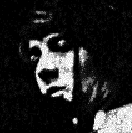
On stage a roadie is fixing a car wing mirror to one of drummer BJ Wilson's mike-stands so that he can see the conductor, and get into counting time in an orthodox manner. That is one of the hardest things when rock groups get together the classical musicians. The rock people talk in hip phrases, solos and sequences. The orchestra in bars, notes, and lettered references on their scores. Just one small piece of timing needs to go out, and the orchestra are going to get lost. If one of the band blows something out on a normal gig the rest know how to contain that mistake. You can't jive when there are 70 people slightly out of tune with you though.
Three hours on, things are nearly there, but there are still points that need to be worked on. Solos, especially (guitarist) Dave Ball's, have to be contained in a certain number of bars and even if the playing is steaming there can be no stretching out. Rehearsals are over, but the union man allows a vote to determine whether or not the orchestra wish to do another hour.
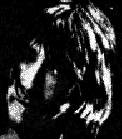
They vote in favour of staying on, and the air is so tense you'd need a power drill to cut through the nerves that everybody is feeling. Heider's sorted his end out, Gary Brooker looks nervous as they finish on Salty Dog and the seagull tapes that got messed up before happen this time.
The point that hits home with the band is that they are going to have to sell 120,000 albums [sic] to break even, and more rehearsal time is needed. All they need to do is play a few notes out during the concert and the whole recording is down the drain.
Back in the hotel over dinner, Gary Brooker talked to me about the way things were going. And although to everyone else it sounded fine, he was not too happy with the way things had been going.
Procol have done just one gig with an orchestra before, and that was three years ago in Stratford, Ontario. No-one was there to record it that time, and when this chance came up, the first thing Brooker wanted to do was get the concert down on four inch tape.
'This concert is something I have always wanted to do. The concert in Stratford was so frustrating we never even heard it. If it is successful, then I want to do a few more. The next thing is to try it in London with the Royal Philharmonic,' said Gary.
'How difficult is it,' I asked him, 'to play with an orchestra after the freedom that playing in a five piece band allows?'
'You have to modify your playing, there's not the freedom you have when you're just with the band. It's all down to bars.'
One thing the concert has pushed Gary into thinking about seriously is a tour from city to city working with orchestras. Here though, another thing bites home very hard, and that is how little people think of Procol in Britain. How we have turned our backs on what must be one of the most original bands to have come out of Britain, right from the beginning when they came out with A Whiter Shade Of Pale on the one hand they have been innovators, and on the other they have been spurned.
'I'd like to do a tour with an orchestra. Obviously not with the same orchestra all the time, but say the Philadelphia Symphony Orchestra, Chicago with theirs. I like the idea of doing that, but we've never asked anybody if they would like to play with us. They asked US to do the gig here, and the same at Stratford. If someone could get that together then we'd do it.'
Brooker taught himself arranging, and that is one of the reasons why his orchestrations work so well. Unlike other rock and rollers let loose with an orchestra he has not tried to write classical pieces, but used the extra instruments in much the same way as bands overdub extra instrumentation in the studio.
'It's pretty much common-sense. I have a book that I found at my father's, that I look at if I want to know the range of an oboe and I know what each instrument sounds like.
'I think that is the way it should be, a total thing. It is still not as perfect as it should be, but if I had year to sit back and write then it would be. The orchestra complements what we are playing; and they add a bit as well.
'I went to see the Deep Purple thing at the Albert Hall, we'd done our bit at Stratford, I wanted to see how other bands approached working with an orchestra, but their thing was so unimaginative. Like maybe for five minutes of the time they were playing together, what they lacked was material.'
One thing that I feel maybe holds Procol back, not so much in the States where they are undoubtedly one of the most critically acclaimed of all British groups, is their lack of a stage show. They get up there and play music and little else, Brooker sits on the left of the stage looking across at organist Chris Copping. BJ Wilson looks pretty funky as he attacks his drums with great [sic], and Dave Ball adds a 'Monty Python' touch: but there again new boy bass guitarist Alan Cartwright just lays down a heavy bass.
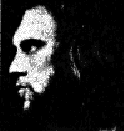
'It gets a bit silly. All we are trying to do is have a good time at a concert. We don't exactly get people dancing in the aisles but we are not up there to educate people – which a lot of so-called artistic groups are trying to do. It we don't go down well it's because we weren't playing well enough, nothing else.'
Dinner over, it was back to very tense recording studio back stage at the Jubilee Hall, and not only the band felt nervous about the show. Everybody who had got caught up in the show was feeling butterflies, and by the time Chris Copping got out on stage to play a short organ piece with the orchestra before the Procol gig began there couldn't have been a steady hand back stage.
Copping's piece, Albinoni Giazotto's Adagio in Sol Minor didn't really happen. But it was a brave try at something that he wanted to do. Unfortunately nerves hit hard, and as the piece only lasted seven minutes it took him half that to really find his feet and lose butterflies.
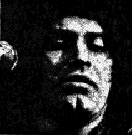
Opening with Conquistador both the orchestra and Procol sounded very shaky, but the orchestra were coming through the PA this time. And unless people had been there during rehearsals I don't think they could have sensed it was far from perfect.
The most amazing thing with this number, hitting at Spain in a way that transported one straight into the Madrid arena, was that Brooker had finished the arrangements in jets on the way to Edmonton. Later when the concert had finished the band came back to redo the number, and second time round it sparkled so much that the applause far drowned the opening appreciation.
Whaling Song [sic] that followed was again a little shaky, but if any of the Brooker/Reid songs are masterpieces this is the one. Somehow after hearing it with an orchestra that caught every mood of the sea, I could never get into it the same way without the piccolo, flute and clarinet to bring in the calm day break after the orgasmic orchestra and choir bringing to life the sea and the whales pain in bring hunted.
From half way through Whaling Song [sic] onwards the confidence that was missing came to light, the orchestra started to steam – what does an orchestra do and how does one equate 50 people having a ball in rock and roll terms. Simple Sister and Salty Dog both hit those high spots again, showing more and more what a writer Brooker is. His songs come to him at the piano playing around with chord sequences, and it is here that he outstrips the majority of writers in the rock idiom. At times the lyrics are a little too much, but once you've met Keith Reid, who struts around like a left-over from the romantic days now passed they fall into place easily.
If Wally Heider managed to catch only a quarter of the buzz that rocked out of that concert then Procol Harum have an album on their hands that surely must go down as one of the most magnificent recordings to come out of the rock age. The trouble is that when people get hold [sic] I hope they listen to it as a large rock and roll group and forget that there is a symphony orchestra and choir there. You have to approach it as simply a rock and roll group enlarged by 70 people, filling out and adding dimensions that get lost in live performances.
Apart from the obvious recording success, the concert itself was a bitch. Having been used to English audiences and their 'come on and show me' bit, it was lifting to be in amongst people who obviously new [sic] music, and understood that performers need response to get their best out of themselves. It's very possible that the same show moved to London would have been little more than just a gig, and I'm willing to stick my neck out and say that without such an attentive, responsive group of people in the Jubilee Hall it would not have happened in the way it did.
Procol too, have gone on to a new strength now the band is a five-piece, allowing Chris Copping to stay at the organ and not have to keep swopping from Hammond to bass guitar.
The concert, before they ran through a couple of the numbers again, and especially In Held 'Twas In I, a long complicated piece that goes back to their first [sic] album, drew a standing ovation at the end. So good was it, that even when they had run through three numbers at the end again the audience was still with them.
Many more pages devoted to the Edmonton concert
PH on stage | PH on record | PH in print | BtP features | What's new | Interact with BtP | For sale | Site search | Home |